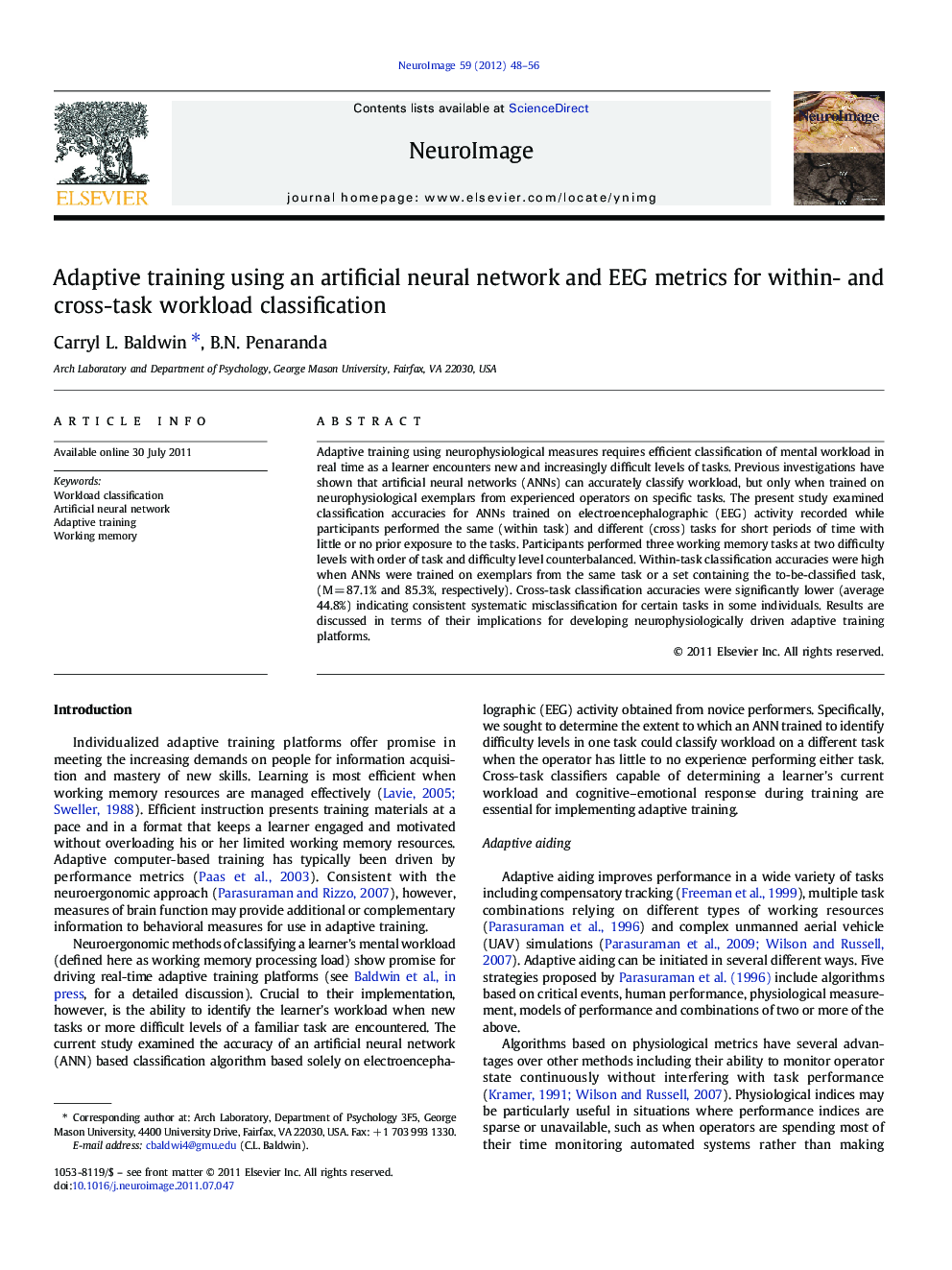| Article ID | Journal | Published Year | Pages | File Type |
|---|---|---|---|---|
| 6032989 | NeuroImage | 2012 | 9 Pages |
Adaptive training using neurophysiological measures requires efficient classification of mental workload in real time as a learner encounters new and increasingly difficult levels of tasks. Previous investigations have shown that artificial neural networks (ANNs) can accurately classify workload, but only when trained on neurophysiological exemplars from experienced operators on specific tasks. The present study examined classification accuracies for ANNs trained on electroencephalographic (EEG) activity recorded while participants performed the same (within task) and different (cross) tasks for short periods of time with little or no prior exposure to the tasks. Participants performed three working memory tasks at two difficulty levels with order of task and difficulty level counterbalanced. Within-task classification accuracies were high when ANNs were trained on exemplars from the same task or a set containing the to-be-classified task, (MÂ =Â 87.1% and 85.3%, respectively). Cross-task classification accuracies were significantly lower (average 44.8%) indicating consistent systematic misclassification for certain tasks in some individuals. Results are discussed in terms of their implications for developing neurophysiologically driven adaptive training platforms.
⺠Neutral network classifiers were ran with within- and cross-task training date sets. ⺠Highly accurate overall classifications were achieved with novice performers. ⺠Classifications were higher within- (M = 87.5%) relative to cross-task (M = 44.8%). ⺠Classifiers including tasks not being classified were moderate (M = 85.3%). ⺠Cross-task classifiers led to systematic misclassification for some individuals.
